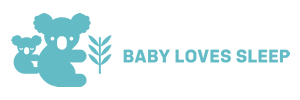Your Cart is Empty

The 4 Month Sleep Regression
September 07, 2021 2 min read
Congratulations! You’ve survived the first few months with a newborn and are well on your way into infant-hood. By now, you’re adjusting to life with your little one – but just when you think you’ve got it all figured out, BOOM. The 4 month sleep regression hits!
What is this regression, and why does it happen at 4 months?
Well, it is about this time in your baby’s development that their sleep patterns begin to change. Your baby will leave the hours of newborn slumber behind them, and will start cycling between periods of light and deep sleep. It is these transitions between light and deep sleep that are new to your little one, and may cause them to wake up more frequently.
This regression affects some babies at four months on the dot, but can occur earlier or later for others. Some babies (and their lucky parents) will be seemingly unphased by this regression.
However, sleep issues at this time are a very common occurrence, so if you’re deep in the trenches of the 4 month regression, you’re not alone!
As well as their sleep cycles maturing, your baby may also be going through other developmental milestones at the same time: learning to roll, developing their language, and beginning to recognise faces. All of these mixed together make for some pretty long nights.
So what happens next?
Here are some tips to help you get through:
- Stick to your routine! Consistency is key, and if you can ride it out through the regression, those skills will stick with your baby over the coming months. If you haven’t implemented a routine yet, now is a great time to have a think about creating one.
- Make sure that your baby’s sleep space is safe and familiar, including the use of an age-appropriate swaddle or sleep suit to help them associate sleep time.
- Always remember to follow safe sleeping guidelines from the Red Nose Foundation. Put baby down to sleep on their back, make sure that their face and head are uncovered and the cot is free from other items. Your baby’s safety should always be your first priority.
- Offer comfort when required – your baby will likely be just as over-tired as you!
- Reach out if you need support. Whether it’s friends and family members, a healthcare professional or one of the many services out there that are available to you at all times, knowing that you’re not alone is a very important step.
Hang in there folks, you’ve got this… but should I mention that the next common regression is only a few months away?
Make sure you follow on with our series on sleep regressions to find out what’s coming next:
Sleep Regression in Babies - Recognising the Signs
The 4 Month Sleep Regression
The 6 Month Sleep Regression
The 8 Month Sleep Regression
The 12 Month Sleep Regression
The 18 Month Sleep Regression
Subscribe
Sign up to get the latest on sales, new releases and more …
